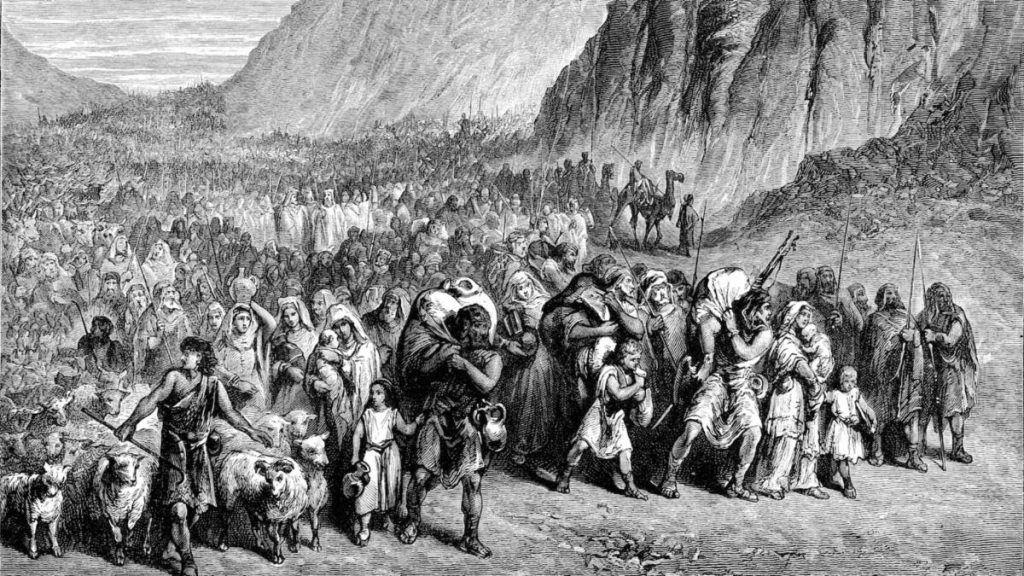
Oppressed Israel
The book of Exodus is the second book of the Old Testament and records the fate of the descendants of Jacob, who became a great nation in Egypt – Israel. The first part of Exodus tells us how the Israelites came to be enslaved by the Pharaoh and how, with God’s help, they escaped from oppression (Chapters 1-15). This event gave the book the name “exodus” in the Latin Bible and the name “Exodus” in the English Bible. The importance of the book of Exodus is not only the harsh experience of Exodus, but also God’s revelation at Mount Sinai and the covenant between God and His people. God chose the people himself and made them his people by faithfully caring for them. The role of God’s people is to respond personally to the grace of God that they have received without any cost to them.
The greatness of Israel
When Jacob left Israel and migrated to Egypt with his sons and people, there were seventy followers that God blessed them with in Genesis 46:26-27. The significance of the number of people, seventy, became a great people because seventy is a number that symbolizes fullness. God fulfills His promise of multiplication through Abraham. God is faithful to fulfill what He has promised. Verse 7 reminds us that in the earth’s creation, He blessed it to be fruitful (Genesis 1:28). The word “land” refers to the whole earth in Genesis and to Egypt in the text.
Egyptian Oppression, God’s Touch
The work Joseph had done for Egypt was quickly forgotten when the power of a new king arose. The Egyptian king, in his wisdom, oppressed the Israelites to decrease their numbers and leave his land – which eventually happened. The Israelites were taken into vassalage (forced to provide labor for public building projects). This was related to the expansion of Ramses II’s new royal palace in the Eastern Nile Delta. However, this had the opposite effect because the Egyptians were terrified that there was a powerful force at work there. The Egyptians made the Israelites’ labor even more difficult. They even stopped providing the chopped straw that was essential for proper brick making.
God’s Intervention during Oppression
The Pharaoh took new measures to reduce the number of Israelites, but was unsuccessful again. He ordered the midwives to kill any Israelite mother who gave birth to a son. But the midwives did not obey his orders because they were all Israelites. Their disobedience thwarted the Pharaoh’s plans. The reason why they disobeyed the Pharaoh’s command was because they were more fearful of disobeying God. The midwives’ decisions show a combination of courage and strength. The text makes no issue of the midwives saying things that are not true to save the babies. While there were rewards for fearing God, it is unlikely that these women were seeking for a reward.
Thinking
1:20 says, “God has ….. grace” in 1:20. God was gracious because of the midwives telling Pharaoh, “The Hebrew women are robust and dismiss before their time. This means that the midwives’ excuse was not just a lie to get by, but was well-intentioned enough for God to give them favor. The midwives wanted to protect the nation of Israel by convincing Pharaoh that it was impossible to kill the children born to Hebrew women through them, so that he would abandon his policy of infanticide, and their idea was good in the sight of God.
These texts demonstrate the inevitability of the exodus of the children of Israel, suggesting that it is imminent. They also teach us how hard Satan and the forces of unrighteousness, symbolized by Pharaoh, are working to harm us. But more importantly, the invisible hand of God surrounds us.
